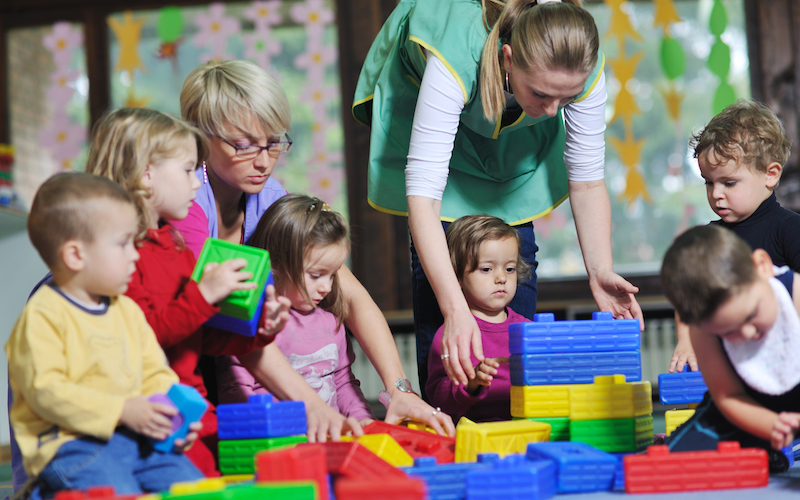The Role of the Montessori Method in Developing Well-rounded Individuals
Dr. Maria Montessori, an eminent psychologist with a keen interest in the acquisition of learning, developed the Montessori Method for educating children by adopting a pragmatic approach. The Montessori Method of teaching utilizes tools like building blocks, bells, colours and other suitable sensory items. Teaching the Montessori Method in Montessori schools, public or private, requires extensive training and certification. The Montessori Method of teaching differs from traditional teaching methods in many ways; for one, enormous trust is placed in the innate learning capabilities of the infants. Teachers are not the centre of attention in the Montessori classroom; their role revolves around the preparation and management of learning materials to cater to the requirements of the young learners. Consequently, the Method primarily focuses on assisting and enhancing the process of self-learning by the children.
Teaching
The approach of teaching in the Montessori Method is quite different from the kind adopted by traditional teachers. Traditional teachers explain the study material in the classroom, whereas Montessori students are expected to absorb and learn from the specially arranged classroom environment. As opposed to the traditional method, Montessori teachers work with a fewer number of students, delivering learning materials based on the requirements of each child in the classroom. The teachers’ role is to explain a lesson and observe the learners while they work at their own pace.
Learning
If a child is not yet ready to learn a certain subject, a teacher in the Montessori school does not pressurise the child to learn in spite of herself. The teachers in the Montessori schools allow the students to learn at their own pace; they seldom impose punishments or disciplinary actions. Instead of resorting to strict disciplinary measures, the teacher puts off a difficult lesson for another day. The Montessori system allows the child enough time to grasp the concepts clearly. The Montessori Method firmly believes that forcing a child to learn will affect the development of the child, adversely. Instead, a child is encouraged to explore the carefully designed environment and learn lessons on her own, with the aid of the teacher and classmates.
Skills and Techniques
You need extensive training to acquire the skills of a Montessori teacher. Observation skills are necessary to acquaint yourself with each student’s interests, needs and temperament. In the Montessori Method, it is crucial to understand the temperament of the students; if they are receptive to absorb new concepts, the teacher can introduce topics of a more advanced level. The teacher is a facilitator and enabler in the Montessori classroom and serves as a creative resource for young learners. The teachers adopt approaches that enable character development of the students in an environment that facilitates the cultivation of qualities like logical thinking, social perception and analytical skills to grow into responsible citizens.
Training
These days, there are a number of Montessori Training Courses available. Conveniently enough, the Montessori training equips you to facilitate all round development of children in different settings including pre-schools, nursery programs, kindergartens, day-care centers, etc. You can consider training for the Montessori programmes through private institutes, public colleges or private universities.
Dr. Maria Montessori observed that a Montessori teacher should pay more emphasis on the learner than on the study material. Nevertheless, with meticulous planning and efforts, Montessori teachers are continuously alert to the development of each child, actively assisting them to grow into well-rounded individuals.



